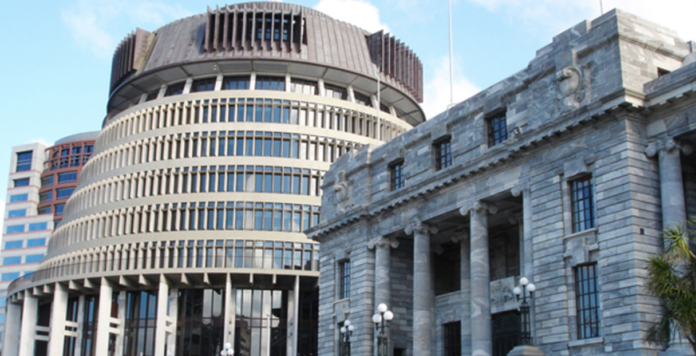New analysis of MP qualifications reveals New Zealand’s Parliament is one of the most educated and highest qualified in the world, and significantly more educated than Australia’s.
The research, by Mark Blackham of BlacklandPR and Geoffrey Miller of the Democracy Project, identified over 174 separate tertiary qualifications among Parliament’s 120 MPs.
About 90% of New Zealand MPs have university degrees, which is a higher proportion than Australia (75%[1]) and the UK (85%[2]), and just under the US (95%[3]).
7.5% of New Zealand MPs have doctorates, seven times higher than Australia (2%[4][5]) and double that of the US and UK (3.4%[6] and 3.2%[7] respectively).
The most popular qualifications were in the humanities (45 MPs, or 37% of all MPs) and law (25 MPs, or 20%). The most popular tertiary institution was the University of Auckland, with 40% of MPs studying there.
The parties in Parliament with the most qualifications per MP are the Greens (20 qualifications between 10 MPs) and National (whose 33 MPs collectively hold 53 qualifications).
About 13 MPs had no post-secondary qualification (or none can be identified)
Blackland PR Director Mark Blackham says the high number of qualifications reflects well on the strength of the New Zealand education system.
“We’re fortunate to have such a strong and accessible education system, and this has led to a very highly educated group of elected representatives.
“Our Parliament is more qualified than most of the world’s largest democracies – and it’s satisfying that we have a smarter lot than the MPs running Australia.”
But Blackham says the results also mean MPs are more distanced from the experience of voters.
“Only 25% of New Zealanders have a degree, compared to 90% of MPs.
“If you include teaching diplomas, only 6.6% of MPs have a vocational diploma or certificate, compared to 25% of New Zealanders.
“These points to a greater level of privilege, and a different route to adulthood among our MPs than most people experience.”
Geoffrey Miller says it is up to voters to decide whether the higher level of qualifications leads to better decision-making.
“Tertiary qualifications don’t just provide subject knowledge – students also develop valuable transferable skills in teamwork, leadership and analysis. These are valuable assets for any MP, but Parliament’s adversarial and tribal nature means it’s a very different beast to a university or polytechnic. Party loyalties also play a huge role.
“Moreover, we shouldn’t judge MPs solely by their academic prowess. The character, life experience and values of MPs are just as important – in fact, they probably matter even more.”
Miller also says the abundance of qualifications does not necessarily mean that MPs and ministers are more qualified in the matters they are addressing.
“Most MPs are qualified in law or the arts. These skills are valuable for Parliamentarians to have. Nevertheless, a more diverse range of qualifications amongst MPs would make it easier for party leaders to assign portfolios to MPs with relevant experience.
“Covid-19 shows how useful it is to have MPs with medical backgrounds, such as Labour’s Dr Ayesha Verrall and National’s Dr Shane Reti.“
Five MPs in Parliament hold health qualifications, while eight have education qualifications, five have BCom degrees and six hold MBAs. It’s not just the major parties that boast specialist expertise – Act’s David Seymour is a qualified electrical engineer and the Greens’ Julie Anne Genter trained as an urban planner.
“MPs who truly understand their portfolios are more likely to ask probing questions of ministerial staff. By contrast, ministers who are generalists are more at risk of having decisions made for them by public servants who understand the detail,” Geoffrey Miller says.
Mark Blackham says the links between political portfolio and education and work experience are generally tenuous.
“Ayesha Verrall’s background as an infectious diseases physician is an unusually good match for the Associate Minister of Health portfolio,”
“MPs with qualifications in STEM (science, technology, engineering and mathematics) subjects are particularly underrepresented in Parliament.”
How study was conducted
Qualification data was gathered from MPs’ public biographies, social media, media articles and via written responses from MPs’ offices.






And to think most of our first Labour government only finished Primary School!
Some of them like John.A. Lee had been young criminal offenders.
Harry Holland, first parliamentary leader of the Labour Party, was jailed for sedition as were Bob Semple, Michael Savage and others. Distinctly non-respectable.
These ‘uneducated’ men and women could launch New Zealand’s first comprehensive welfare state and lead it through a world war to a stable and prosperous future.
Their policies were so successful that their political opposition, the National Party, left them in place.
Just think – if only these people had the chance to go to university and be just as fucking useless as the present Labour government.
Comments are closed.